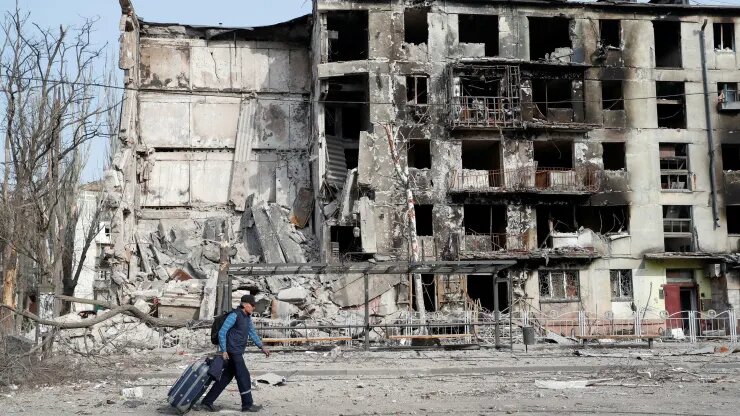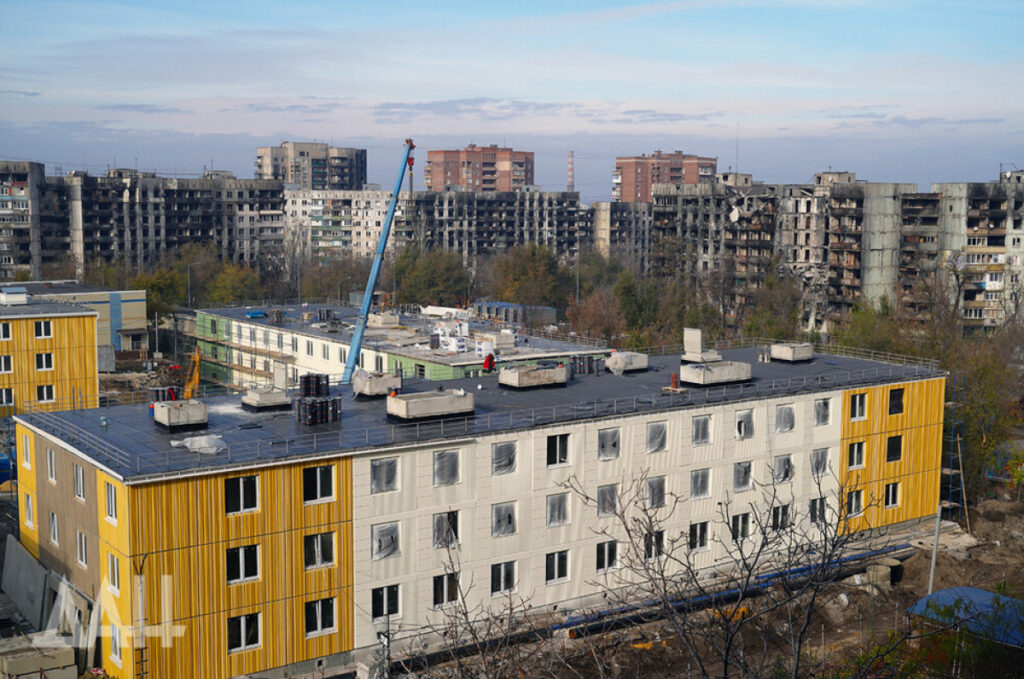BBC: “Life is constant tension, fear, distrust” — reality of Russian occupation in Mariupol

Three years after Russian forces captured Mariupol, something strange is happening on social media. Pro-Russia influencers are posting glossy videos of a rebuilt city where life looks normal again.
But what’s actually happening on the ground?
The BBC tracked down more than half a dozen people—some still trapped in the occupied city, others who recently escaped—to find out. Their accounts reveal a city where appearance and reality couldn’t be further apart.
Most of Mariupol still in ruins
“What they’re showing on Russian TV are fairy tales for fools,” said John, a Ukrainian still living in occupied Mariupol. The BBC changed his name to protect him from Russian authorities. “Most of Mariupol still lies in ruins.”
According to residents, Russian authorities have focused reconstruction efforts on main thoroughfares where cameras document progress. However, areas beyond these showcase routes remain largely destroyed. Many residents continue living in severely damaged apartments with compromised structural integrity.
“Rubble and emptiness. Many people still live in half-destroyed apartments with their walls barely standing,” John said.

Russians don’t separate out dead bodies from rubble
Olha Onyshko, 66, escaped Mariupol late last year and now lives in Ternopil, western Ukraine. She watched this reconstruction theater firsthand. The cleanup process was particularly grim.
“They cleared the debris, but they didn’t even separate out the dead bodies. They were just loaded onto trucks with the rubble and carried out of the city,” she shared.
Can you even drink the water in Mariupol?
The city faces critical infrastructure challenges, particularly with water supply. The Siverskyi Donets–Donbas Canal, which previously supplied the city, was damaged during fighting.
Residents report intermittent water service, with supply flowing for one to two days before stopping for three-day periods. When available, the water appears yellow and requires boiling before consumption.
Some residents say the water looks like Coca-Cola.
Serhii Orlov, Mariupol’s deputy mayor in exile, ran the numbers. “Only one reservoir was left supplying water to Mariupol. For the current population, that would’ve lasted about a year and a half. Since occupation has lasted longer than that, it means there is no drinking water at all.”
Power outages also occur frequently, while residents report high food prices and limited access to essential medications. Diabetics struggle to obtain insulin, which has become prohibitively expensive when available.
The BBC contacted Mariupol’s Russian administration about these shortages. No response.

Russia legally steals 20,000 homes in razed Mariupol — then charges homeless victims for rent
What are Russian occupiers teaching the children?
Beyond physical hardships, residents express particular concern about education policies imposed by Russian authorities. School curricula now teach that multiple Ukrainian regions, including Donetsk, Luhansk, Kharkiv, and others, belong to Russia. Only Crimea is occupied fully, while other regions are occupied partially or not at all.
Special lessons called “Conversations about Important Things” present Russia’s 2022 invasion as “liberating” Russian-speaking populations from Nazis.
“Teachers who refuse to take these lessons are intimidated or fired. It’s like they are reprogramming the minds of our children,” another resident explained.
Resistance in Russian occupation
Despite risks, some Ukrainians maintain resistance activities within the occupied territory. These groups collect intelligence on Russian military movements and equipment, transmitting information to Ukrainian forces through secure channels. Resistance members also conduct small-scale sabotage operations, including attacks on railway infrastructure.
The work carries significant personal risk. One former resistance member fled after noticing a Russian soldier showing his photograph to local merchants. Daily life requires constant vigilance, with residents regularly deleting phone messages and avoiding calls to Ukraine due to surveillance concerns.
“Every day you delete your messages because your phone can be checked at checkpoints,” James says. “You’re afraid to call your friends in Ukraine in case your phone is being tapped.”
His neighbor was arrested right off the street after someone reported he was allegedly passing information to the Ukrainian military. “Your life is like a movie—constant tension, fear, distrust.”
“We want liberation” from Russian occupation
As diplomatic discussions continue about potential territorial concessions that Russia insists on, resistance members have a clear message.
“Giving away territory for a ‘deal with Russia’ will be a betrayal,” John says. “Dozens risk their lives every day to pass information to Ukraine, not so that some diplomat in a suit will sign a paper that will ‘hand us over.'”
His final words: “We don’t want ‘peace at any cost.’ We want liberation.”